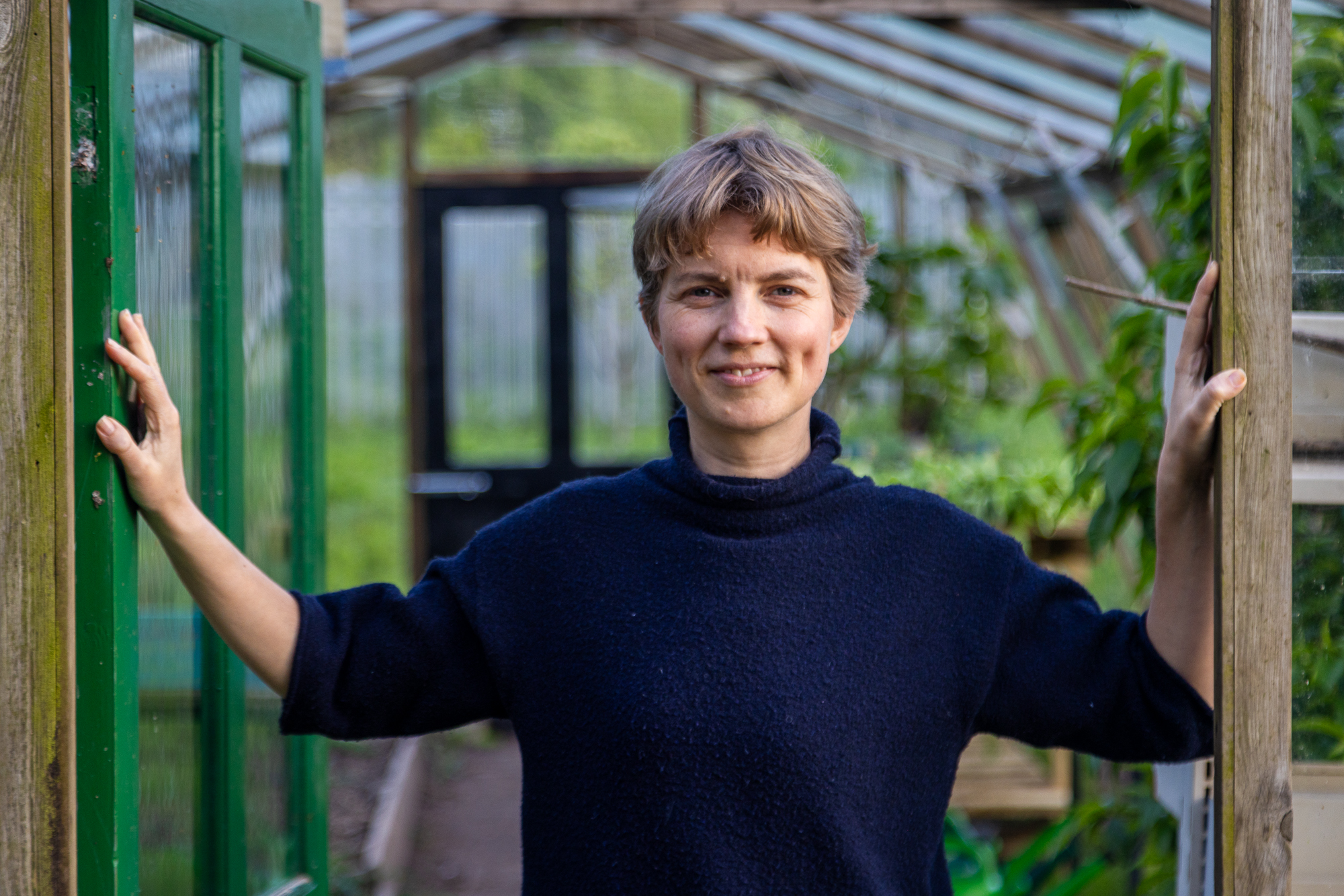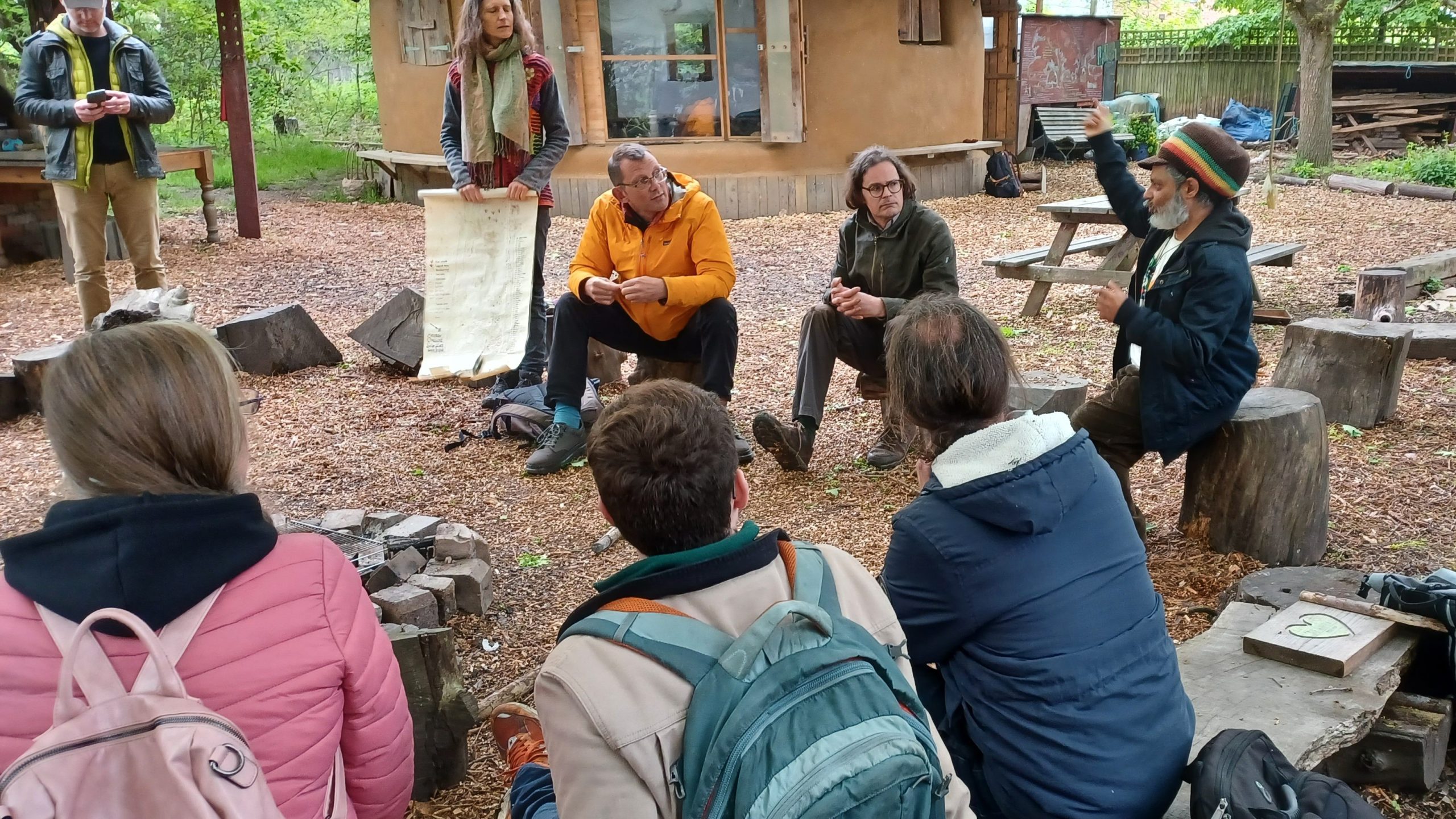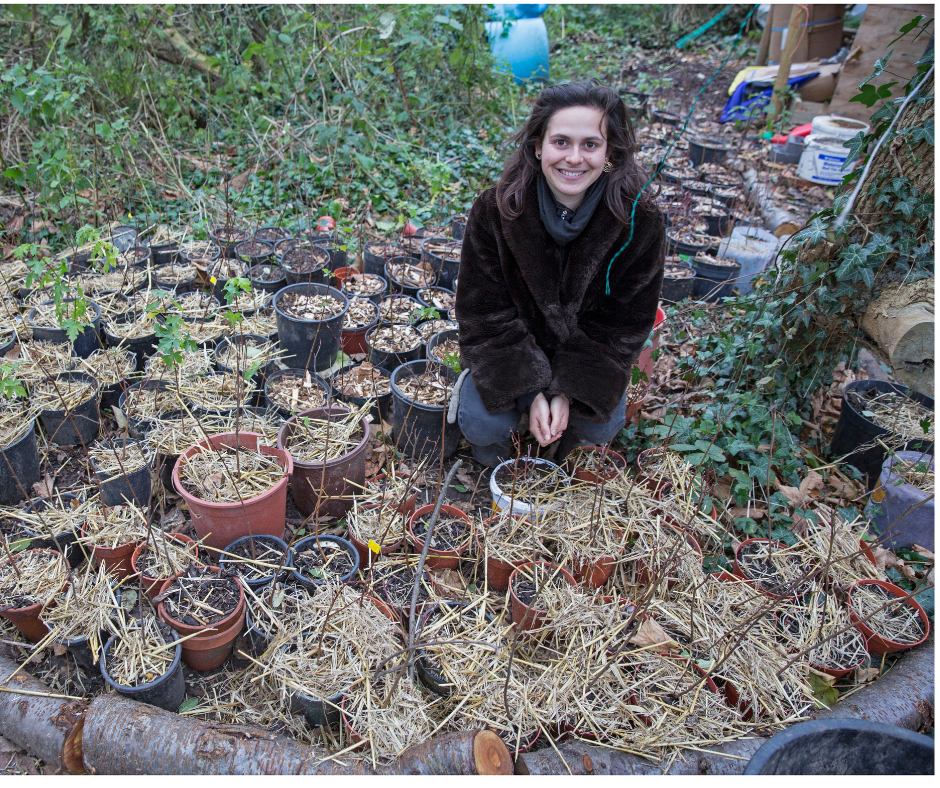Making way for Justice in each community – Transition Alive 1

17 April 2024
6 minute read
When you work for change, there are some questions which consistently arise. In Spring 2024, we convened three Transition Alive conversations to grapple with some of these knotty questions and explore projects which seek to answer them. Cam Elizabeth (writer and film producer, and founder member of Welsh Transition group Usk Together for the Climate) shares three reflections on what emerged, and what we can all learn from the stories and challenges shared.
What does the phrase ‘Just Transition’ mean to you? It’s a relatively new term in the UK, one that is becoming crucial for thinking about inclusivity and fairness within UK environmental movements.
What is clear to me is that to be ‘just’ we need to be acting alongside people and with awareness of our connection to all others, human and otherwise. Justice is lost when we lose sight of the bigger picture.
Rona Hardie, Just Transition Lead for Transition Together reminded us of our current situation. Drawing from the UK Poverty Report 2024 and Oxfam’s Inequality Report 2024, Rona emphasized that poverty in the UK has increased close to pre-pandemic levels and highlighted that not only have five billion people globally become poorer since 2020, but that, at the same time, the richest five men in the world have doubled their worth. We could be on track to have the world’s first trillionaire in the next 10 years!
The other key piece of information from Rona was this: “The impacts of climate and environmental change aren’t distributed evenly. It’s often the nations and communities who’ve done the least to contribute who suffer the most consequences.”
For anyone who might feel overwhelmed by these hard-hitting statements, maybe unable to orient themselves and their own communities’ circumstances within these contexts, both Rona and Rob Hopkins offered sound guidance. Rob advised: “Inclusion and just transition looks different in every community. Building networks around solidarity and economic inclusion looks different in every place.” What a relief to be able to notice that we can work with the circumstances of our own communities to decide the most effective way to contribute to the health, happiness and security of all.

Within the Transition movement, there are projects looking after and repositioning people from marginalized communities to a more central place within the green movement. For example, Permaculture designer and teacher, Rakesh “Rootsman Rak”, talked about his work collecting stories to “very clearly show that the roots of permaculture and a lot of the inspiration comes from indigenous peoples.” He explained that while permaculture is based on nature-led learning and practices from all over the world, it is often portrayed as a “white person’s prerogative.”
Steve Jones from Community Roots is bringing permaculture to working class estates in Bolton.They distribute trees and seeds to people across the city: “There isn’t anything in the statutory domain that recognizes there’s a need for a food culture in working class communities. There’s loads of people using food banks. The stuff that you get from food banks isn’t that nutritious really. I think it’s great that the food’s available. It’s keeping people alive, but…we think giving people access to fresh food is going to have a good effect on peoples’ health and they’re going to learn new skills.”
We also heard from projects that are pouring their care into marginalised land. Grow created a garden on land that sits between a Catholic Nationalist and a Protestant Unionist community in North Belfast, an area divided by peace walls. The charity, and now Transition group, places emphasis on creating safe spaces and working in a trauma informed way in this post-conflict society and with people who have lived experience of migration related trauma. Pauline O’Flynn from the group said: “In healing nature, we’re healing ourselves”.

It was equally extraordinary to hear about Grow Heathrow, a group that coalesced around a disused market garden site in Ipson, one of 5 villages in Heathrow. Individuals like Rose Music, a community organiser and musician, relocated their lives to the Grow Heathrow base, a contested piece of land, to oppose the building of the third runway at Heathrow airport. Those that settled onsite built relationships with local people who were and are at risk of losing their homes and are vulnerable to the impacts of air and noise pollution. This story really did drive home what a project with global and local consequences can look like.
The ways these projects tackle environmental, land and social justice issues concurrently may or may not make sense for your own community. That’s ok. There were no attempts to share a winning formula. Only a gentle insistence that we keep holding on to each other. I kept asking myself ‘what does disconnection look like where I am?’, ‘what piece of the bigger picture can my Transition group contribute to?’ In the face of this uncertainty, Yaz Brien from the Transition Together team offered up the idea that addressing systemic issues, at any scale, starts with looking at the ways we’ve become disconnected from each other in our individual lives. Yaz said: “Making outer systemic changes must also involve making some inner shifts.”
Yaz connected this with Inner Transition, a thread within the Transition Movement since 2007: “We all live and work in systems and institutions that have deeply embedded oppression at their core. Some of us are marginalized by these systems, while others are privileged by them…whether we’re conscious of it or not, all of these systems will show up in us.”
Whether we are privileged or marginalized by current systems, I think it’s fair to say we’re all hurt and limited by them and it can be hard to think about doing things differently. I live in a community where the majority of us have identities that are privileged by many of the societal systems that are in place. I want to focus on how we shift the balance of power from this end.
The Transition Together team opened up about how they themselves are making changes. They are now placing greater emphasis on social justice in their seed funding support and in their training and events programmes. This isn’t easy stuff to look at, we’re all navigating our way through a system that is set up to divide and confuse us, but having an honest conversation, full of inspiring leadership, is a move in the right direction.
For more information
Watch back Transition Alive Part One – Alive to the call of Justice here.
Read Cam’s other reflections on The Challenge of scaling up well and “This is a Time for Serious Play”
Read the full story of Community Roots in Bolton
Read the full story of Grow Heathrow